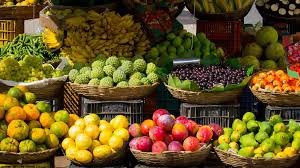Nutrition
Benefits of chocolate

Antioxidants
Dark chocolate contains several compounds that possesses antioxidant properties, such as flavanols and polyphenols. Antioxidants neutralise free radicals and prevent oxidative stress.
Oxidative stress refers to the damage that excessive amounts of free radicals can inflict on cells and tissues in the body.
Oxidative stress contributes to the natural aging process. Over time, the effects of oxidative stress may also contribute to the development of a variety of diseases.
Heart disease risk
Regularly eating dark chocolate helps reduce a person’s likelihood of developing heart disease. Some of the compounds in dark chocolate, specifically flavanols, affect two major risk factors for heart disease: high blood pressure and high cholesterol.
Blood pressure
The flavanols in dark chocolate stimulate nitric oxide production in the body. Nitric oxide causes blood vessels to dilate, or widen, which improves blood flow and lowers blood pressure.
Cholesterol
Dark chocolate also contains certain compounds, such as polyphenols and theobromine that may lower levels of low-density lipoprotein (LDL) cholesterol in the body and increase levels of high-density lipoprotein (HDL) cholesterol. Doctors often refer to LDL cholesterol as “bad cholesterol” and HDL cholesterol as “good cholesterol.
Anti-inflammatory effects
Inflammation is part of the body’s natural immune response to germs and other harmful substances. However, chronic inflammation can damage cells and tissues and may increase the risk of some health conditions, including type 2 diabetes, arthritis, and certain types of cancer.
Dark chocolate contains compounds with anti-inflammatory properties that may help reduce inflammation in the body.
Insulin resistance
Insulin resistance occurs when the body’s cells stop responding to the hormone insulin. Insulin resistance can cause abnormally high levels of blood glucose, which can lead to prediabetes and type 2 diabetes.
Brain function
Eating dark chocolate may improve brain function and help prevent neurodegenerative conditions, such as Alzheimer’s disease and Parkinson’s disease.
The findings of a small 2018 study Trusted Source suggest that the flavanols present in dark chocolate may enhance neuroplasticity, which is the brain’s ability to reorganise itself, particularly in response to injury and disease.
Nutrition
The First 1,000 Days: Why Ghana’s investment in maternal and child nutrition matters for human capital development

From the start of pregnancy to a child’s second birthday, the first 1,000 days, represents the most important window for human development. Good nutrition shapes the foundation.
During this short window, the body and brain grow at a pace that will never be repeated. When nutrition is inadequate, the damage to physical growth and cognitive development is often permanent. No later investment in education or healthcare can fully reverse these losses. Ghana’s future workforce and economic progress depend on getting nutrition right during this critical period.
Science is clear. A baby’s brain develops rapidly during pregnancy and early childhood, forming the foundation for all future learning and health. Adequate nutrients during pregnancy support the formation of neural connections that underpin learning, memory, and emotional regulation. When pregnant women lack essential nutrients, their babies begin life at a disadvantage. When young children experience severe malnutrition, they miss critical growth periods that do not return.
Ghana faces serious challenges during this critical window. An estimated 68,517 children suffer from severe acute malnutrition. Between 37 and 63 percent of pregnant women are anemic, with iron deficiency particularly common in late pregnancy. These problems translate directly into diminished potential. Malnourished children perform worse in school, earn less as adults, and face higher risks of chronic diseases. The economic losses multiply across generations.
Research worldwide shows that nutrition investments during the first 1,000 days deliver exceptional returns. Well-nourished children learn better, perform better academically, and become more productive adults. Countries that invest in early nutrition experience faster economic growth through stronger, more productive workforces.
Ghana already has effective solutions. Multiple Micronutrient Supplements for pregnant women reduce the risk of low birth weight and preterm birth, while Ready-to-Use Therapeutic Food enables high recovery rates for children with severe acute malnutrition. Both are approved in Ghana’s health guidelines. The problem is not lack of knowledge but lack of access. Coverage remains limited because financing depends heavily on donor support rather than sustainable domestic systems.
Integrating these nutrition interventions into the National Health Insurance Scheme would help close this gap. With a large proportion of mothers and young children already enrolled, NHIS provides a platform for nationwide reach. Recent reforms to health financing further strengthen the case for prioritising essential nutrition services within the scheme.
Ghana’s development agenda emphasizes industrialisation, innovation, and economic transformation. Achieving these goals requires a workforce capable of learning, problem-solving, and sustained productivity. Human capital development, however, does not begin at universities or training centers. It begins before birth.
The first 1,000 days offer no second chances. Each year of delay means another group of children enter adulthood carrying preventable disadvantages. Investing in nutrition during this critical window is not only a health priority; it is a foundational investment in Ghana’s economic future.
Feature article by Womec, Media and Change under its Nourish Ghana: Advocating for Increased Leadership to Combat Malnutrition project
Join our WhatsApp Channel now!
https://whatsapp.com/channel/0029VbBElzjInlqHhl1aTU27

Nutrition
Importance of Fruits During Ramadan

Ramadan, the ninth month of the Islamic lunar (Hijri) calendar, is a period of fasting, reflection, and spiritual growth. A vital part of observing Ramadan is Iftar—the evening meal with which Muslims break their daily fast at sunset. Fruits play an essential role in Iftar, providing nutrition, hydration, and energy after long hours of fasting.
Here are some of the most recommended fruits to include in your Ramadan meals:
Dates
Dates are traditionally used to break the fast. They are rich in sugar, fibre, potassium, vitamins, and minerals, helping to restore energy quickly after fasting.
Watermelon
Watermelon is highly consumed for hydration, as it is composed mostly of water. It can be enjoyed in slices or blended into refreshing smoothies.
Bananas
Bananas are an excellent source of potassium, which helps maintain fluid balance and reduce thirst. They also provide natural energy to keep you going after fasting.
Apples
Apples are fibre-rich and nutritious, promoting heart health, aiding weight management, and improving digestion.
Cucumber
Cucumber is one of the best hydrating fruits, composed of water and fibre, which aids digestion while revitalising the body.
Pawpaw (Papaya)
Pawpaw is low in calories and sugar, rich in fibre, and promotes healthy digestion, hair, and skin. It is a nutritious addition to any Iftar meal.
Including a variety of these fruits during Ramadan not only helps replenish lost nutrients but also supports overall health, digestion, and hydration throughout the fasting period.
By Linda Abrefi Wadie
Join our WhatsApp Channel now!
https://whatsapp.com/channel/0029VbBElzjInlqHhl1aTU27


 News1 week ago
News1 week agoFinance Minister outlines new gold policies to boost reserves and curb smuggling

 News1 week ago
News1 week agoSam George launches the 2026 Meteorological Awareness Month; presents the 2026 seasonal forecast for southern Ghana

 Hot!1 week ago
Hot!1 week agoBreaking: Footballer who killed two children in Abesim handed lifetime sentence






